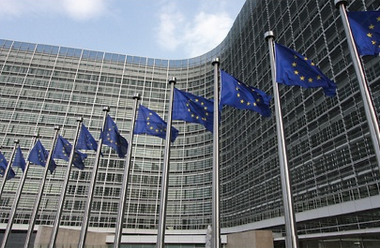The European Commission today unveiled a package of measures it has adopted to further its Capital Markets Union (CMU) agenda, including a legislative proposal for a central registry of corporate data.
The Commission also adopted legislative proposals for review of the European Long-Term Investment Funds (ELTIFs) Regulation, Alternative Investment Fund Managers Directive (AIFMD), and Markets in Financial Instruments Regulation and Directive (MiFIR/D).
The EU executive also said it would follow up next year with more CMU actions, including a proposal on listing, an open finance framework, an initiative on corporate insolvency and a financial literacy framework.
It did not mention pensions adequacy monitoring, the focus of one of the measures on the Commission’s CMU action plan from September 2020.
Valdis Dombrovskis, executive vice president at the Commission, said today’s proposals took the EU “a significant step closer towards creating the CMU.
“We achieve this by improving access to company and trading data, and gearing investments towards our sustainability and digital priorities,” he added.
He said the CMU package had a strong focus on making it easier for SMEs to find and access different sources of funding.
ESAP proposal
The establishment of a central data portal, or European Single Access Point (ESAP) – which could be compared to the EDGAR system in the US – was announced in the Commission’s September 2020 action plan.
The registry is intended for financial and sustainability-related data about corporates and EU investment products, building on disclosure requirements already in force or foreseen, as is the case with the Corporate Sustainability Reporting Directive (CSRD).
According to the Commission, the ESAP will give companies more visibility vis-à-vis investors, which it said was particularly important for small companies in small capital markets.
The ESAP is also closely linked to the Commission’s climate change and sustainable finance agenda, with the EU executive recognising that the introduction of new disclosure obligations for investors, such as the those related to the EU taxonomy and the Sustainable Finance Disclosure Regulation (SFDR), further increased the importance of access to sustainability-related data.
“Continued uneasy access to sustainability-related data and barriers to their digital use hinder the ability of investors to reflect sustainability-related risks and impacts in their decisions and hence to effectively contribute to the Green Deal via sustainable investments,” the Commission said in an impact assessment report on the ESAP.
“This reduces as well the ability of investors, governments and civil society to hold companies accountable for negative environmental, social and human rights impacts, resulting in lower incentive for companies to become more sustainable and resilient.”
The Commission said the ESAP had “great potential to boost the green transition”.
As proposed by the Commission, the ESAP would be governed by ESMA and provide a common source of public, free information about EU companies and investment products. Small and medium-sized companies are to be able to post information voluntarily on the ESAP.
All information would be available in a data-extractable format, with the Commission to have powers to develop machine-readable formats on a case-by-case basis.
The Commission has indicated the ESAP is planned to be operational from 2024 following a phase-in approach.
BVI sees ‘important step’
Investor groups have been supportive of the establishment of a central data portal, with PensionsEurope for example having said that uploading CSRD information to the ESAP would helpfully reduce costs, which was particularly important for smaller pension funds.
A point of discussion has been the order in which information should be onboarded to the portal, with PensionsEurope and others having argued that the ESAP should primarily have investors’ needs in mind and prioritise the uploading of sustainability-related information.
BVI, the German fund management association, today said the implementation of an ESAP was “an important step to improve the availability of data for fund companies and to be able to fulfil the increasing reporting obligations in a more cost-effective way”.
The use of the ESAP would depend on its technical design, it added.
The next steps with regard to the four CMU legislative proposals are for them to be discussed by the European Parliament and the Council.
MiFIR proposal ‘robust’
One of the effects of the changes proposed to MiFIR would be the introduction of a so-called European consolidated tape, which the Commission described as a centralised database providing easy access to consolidated market data to all investors and financial intermediaries, such as brokers.
Efama, the European fund management lobby group, hailed the MiFIR proposal as “robust” and said it was especially pleased by aspects such as that it supported multiple asset classes, all trading venues and systemic internalisers would contribute data, and that the viability of including pre-trade data on the tape woudl be examined soon after the post-trade tape was operational.
“The proposal is broad, comprehensive and well-thought-out,” said Tanguy van de Werve, Efama director general.
“We believe that it provides a solid basis for the launch of a meaningful consolidated tape in the not-too-distant-future, if the ‘minimum revenue targets’ foreseen for the exchanges remain reasonable and deliver an affordable tape.”












